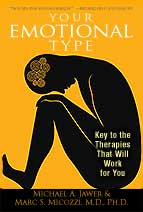Find Your Boundary Type
Please rate each of the statements from 0 to 4 (0 indicates "not at all true of me"; 4 indicates "very true of me"). Try to respond to all of the statements as quickly as you can.
Scores below 30 are considered definitely "thick" and scores above 42 are considered definitely "thin". See where you are on the spectrum below:
The Boundary Concept
Because we are bounded within our bodies, we are enabled to have distinct minds and personalities. The Boundary concept, developed by Ernest Hartmann, MD, of Tufts University, is an especially useful way of looking at personality differences – and understanding why one person may develop a chronic illness that is distinctly different than another.
Boundaries are more than a measure of introversion or extroversion, openness or closed-mindedness, agreeableness or hostility, or any other personality trait. Boundaries are a way to assess the characteristic way a person views her/himself and the way s/he operates in the world based on how that person handles the energy of feelings. To what extent are stimuli “let in” or “kept out”? How are a person’s feelings processed internally? Boundaries are a fresh and unique way of evaluating how we function.
According to Hartmann, each of us can be characterized on a spectrum of boundaries from “thick” to “thin.” In his words:
There are people who strike us as very solid and well organized; they keep everything in its place. They are well defended. They seem rigid, even armored; we sometimes speak of them as "thick-skinned." Such people, in my view, have very thick boundaries. At the other extreme are people who are especially sensitive, open, or vulnerable. In their minds, things are relatively fluid…Such people have particularly thin boundaries.…I propose thick and thin boundaries as a broad way of looking at individual differences.
Hartmann first came to his conception in an interesting way. In the 1980s, he was studying people who have nightmares and noticed that they could also readily recall other vivid or colorful dreams even if they didn’t qualify as nightmares. These people seemed to him especially “sensitive,” “vulnerable,” or “imaginative,” in contrast with other people who came across as more “solid,” “stoic,” or “persevering.” He suspected that there are real brain and body differences between thin and thick boundary people, and he developed a questionnaire to gain more insight.
Since the 1980s, at least 5,000 people have taken Hartmann’s Boundary Questionnaire (BQ) and more than 100 published papers have referenced it. The scores on the BQ are distributed across the spectrum of boundaries in a Bell-shaped curve. Women tend to score significantly thinner than men, and older people tend to score somewhat thicker than younger people.
Thick and Thin Boundaries
Evidence shows that thin boundary people are highly sensitive in a variety of ways and from an early age:
- - They react more strongly than do other individuals to sensory stimuli and can become agitated due to bright lights, loud sounds, particular aromas, tastes or textures.
- - They respond more strongly to physical and emotional pain in themselves as well as in others.
- - They can become stressed or fatigued due to an overload of sensory or emotional input.
- - They’re more allergic and their immune systems are seemingly more reactive.
- And they were more deeply affected – or recall being more deeply affected – by events during childhood.
In a nutshell, highly thin boundary people are like walking antennae, whose entire bodies and brains seem primed to notice what’s going on in their environment and internalize it. The chronic illnesses they develop will reflect this “hyper” style of feeling.
Thick boundary people, on the other hand, are fairly described as stolid, rigid, implacable or thick skinned:
- - They tend to brush aside emotional upset in favor of simply “handling” the situation and maintaining a calm demeanor.
- - In practice, they suppress or deny strong feelings. They may experience an ongoing sense of ennui, of emptiness and detachment.
- - Experiments show, however, that thick boundary people don’t actually feel their feelings any less. Bodily indicators (e.g., heart rate, blood pressure, blood flow, hand temperature, muscle tension) betray their considerable agitation despite surface claims of being unruffled.
In sum, highly thick boundary people don’t take in nearly as much in their environment and they are much slower to recognize what they’re feeling. However, they are affected just as much as thin boundary people by what’s happening within. The differences will ultimately manifest in different types of chronic illness.
What does your Boundary Type
mean for your health?
By knowing your boundary type and understanding how it relates to chronic illnesses, you can take your healing into your own hands--to select the therapies most likely to benefit you.

To learn more, see:Your Emotional Type:
Key to the Therapies That Will Work for You
By Michael Jawer and Marc Micozzi, M.D., Ph.D.Find out:
- How your personality relates to your health
- What chronic conditions you are most susceptible to
- Whether you're thick boundary or thin boundary
- Which alternative therapies are best for your type
- Keep reading...
